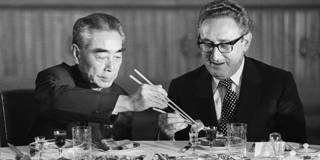
The Legacy of Henry Kissinger
The passing of America’s preeminent foreign-policy thinker and practitioner marks the end of an era. Throughout his long and extraordinarily influential career, Henry Kissinger built a legacy that Americans would be wise to heed in this new era of great-power politics and global disarray.
NEW YORK – It is difficult to imagine the world without Henry Kissinger, not simply because he lived to be 100 years old, but because he occupied an influential – and sometimes dominant – place in American foreign policy and international relations for more than half a century.